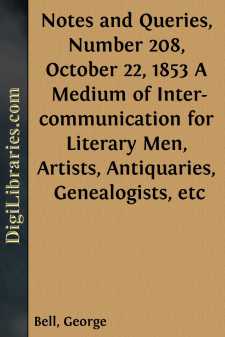Categories
- Antiques & Collectibles 13
- Architecture 36
- Art 48
- Bibles 22
- Biography & Autobiography 813
- Body, Mind & Spirit 142
- Business & Economics 28
- Children's Books 17
- Children's Fiction 14
- Computers 4
- Cooking 94
- Crafts & Hobbies 4
- Drama 346
- Education 46
- Family & Relationships 57
- Fiction 11829
- Games 19
- Gardening 17
- Health & Fitness 34
- History 1377
- House & Home 1
- Humor 147
- Juvenile Fiction 1873
- Juvenile Nonfiction 202
- Language Arts & Disciplines 88
- Law 16
- Literary Collections 686
- Literary Criticism 179
- Mathematics 13
- Medical 41
- Music 40
- Nature 179
- Non-Classifiable 1768
- Performing Arts 7
- Periodicals 1453
- Philosophy 64
- Photography 2
- Poetry 896
- Political Science 203
- Psychology 42
- Reference 154
- Religion 513
- Science 126
- Self-Help 84
- Social Science 81
- Sports & Recreation 34
- Study Aids 3
- Technology & Engineering 59
- Transportation 23
- Travel 463
- True Crime 29
Our website is made possible by displaying online advertisements to our visitors.
Please consider supporting us by disabling your ad blocker.
Notes and Queries, Number 216, December 17, 1853 A Medium of Inter-communication for Literary Men, Artists, Antiquaries, Genealogists, etc
by: George Bell
Categories:
Description:
Excerpt
THE RELIGION OF THE RUSSIANS.
Public attention being very particularly directed towards the Russian nation at the present time, a few remarks regarding some peculiarities in their manner of worship, &c., which probably are not generally known, may be interesting.
I have been for some time past endeavouring to determine the exact nature of the homage the Russians pay to the "gods"—whether they should be called images or pictures? and whether the Russians should be considered idolaters or not?
Whenever a Russian passes a church, his custom is to cross himself (some do so three times, accompanying it with bowing). In every room in their houses an image (or picture) is placed in the east corner, before which they uncover their heads and cross themselves on entering.
Their churches are filled with these their representatives of the deity, and it is very curious to observe a devout Russian kissing the toe of one, crossing himself before another, while to another he will in addition prostrate himself, even with his head to the ground; this latter is also very frequently done at intervals during the celebration of their services: but their churches are always open, so that if any one wants to pay devotion to a particular image (or picture) while no service is going on, he can do so.
I understand that they consider they worship the deity through these representations. In the present day these gods are called obraaz, of which the literal translation is image. The old Sclavonic word for them is eekona, which was formerly in general use, and has exactly the same meaning, answering to the Greek word εικων. As far as I can make out, neither of these words can be translated picture; but I do not remember to have found this point touched upon in any books I I have read on Russia or its religion; and hope, if any correspondent is able to give us farther information on the subject, he will do so.
The Russians also believe in relics, in their efficacy in healing diseases, working other miracles, &c. Notwithstanding this, a very short time ago, a new relic was found in the south of Russia, and a courier being immediately despatched with it to the Emperor at St. Petersburg; on his arrival, his Imperial Majesty (expecting some important news regarding his operations in the neighbourhood of Turkey), when told his errand, exclaimed, "Away with the relic! it is time to put an end to such nonsense." Would that this were to be carried out! But their superstitions seem too deeply rooted to be done away with in a short time.
J. S. A.
Having seen only one epitaph from this county among those which have appeared in "N. & Q.," I annex a few specimens, which you may perhaps deem worth inserting in your pages.
Burbage:
"These pretty babes, who we did love,
Departed from us like a dove;
These babes, who we did much adore,
Is gone, and cannot come no more."
Hinckley:
"My days on earth they were but few,
With fever draughts and cordials few,
They wasted like the morning dew."
Braunstone:
"All triumph yesterday, to-day all terror...!












